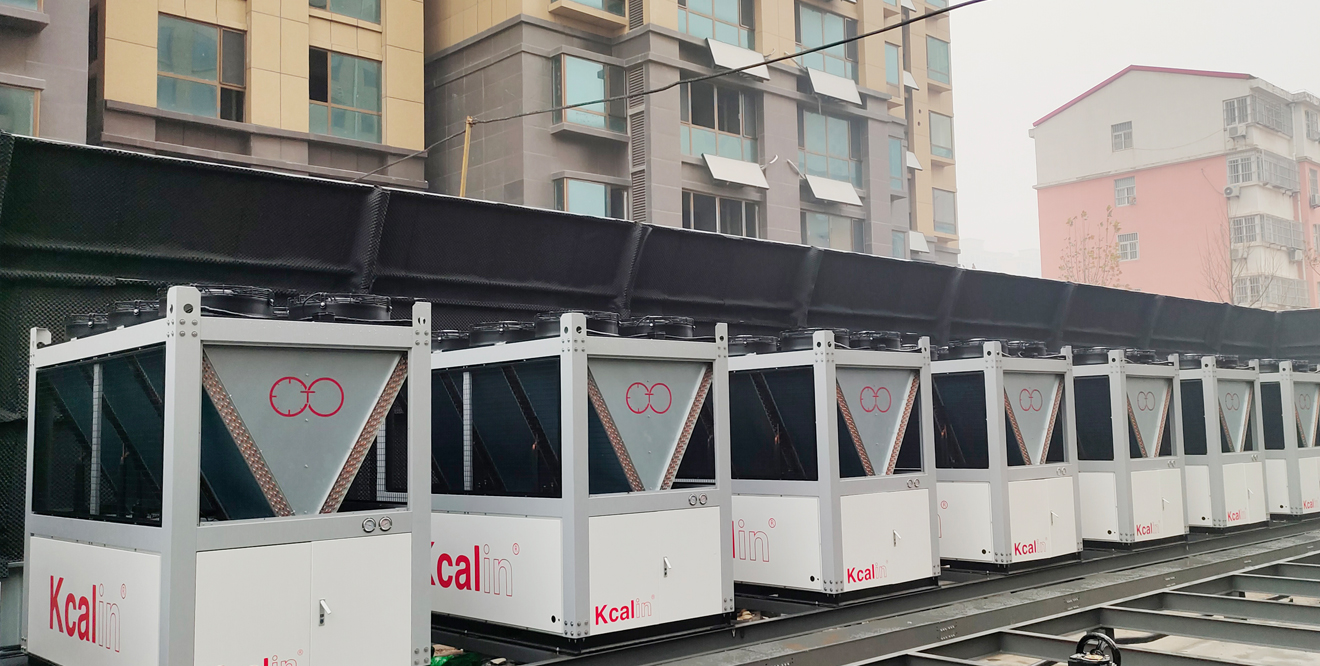With the increasing severity of climate change and environmental pollution, people are paying more and more attention to efficient and environmentally friendly energy utilization. In the field of heating, heat pump technology has become a highly anticipated heating method due to its efficient, energy-saving, environmentally friendly, and low-carbon characteristics. In harsh weather conditions, low ambient temperature air source heat pumps have become a popular heating tool.
An air source heat pump is a device that utilizes the heat in the air for thermal energy conversion, while a low ambient temperature air source heat pump has been further optimized based on this. The principle can be simply summarized as the following steps:
Air heat absorption: Low ambient temperature air source heat pumps absorb low-temperature heat energy from the outdoor environment, even in extremely cold weather conditions, they can still obtain a small amount of heat.
Compression heating: Through the action of a compressor, the heat energy in low-temperature air is compressed, causing its temperature to rise.
Heat exchange release: Heat is transferred to the indoor heating system or hot water supply system to achieve heating or hot water supply.
Recycling and reuse: The cold air generated during the heating process is recycled and absorbed again by the heat pump for energy recovery and reuse.
Advantages of low ambient temperature air source heat pumps

Efficient and energy-saving: Compared to traditional electric heaters or gas boilers, low ambient temperature air source heat pumps have higher energy efficiency. Because it does not directly generate heat, but uses the heat energy in the air for thermal energy conversion, resulting in lower energy consumption.
Environmental protection and low-carbon: Low ambient temperature air source heat pumps do not require fuel combustion, do not produce greenhouse gas emissions such as carbon dioxide, and are pollution-free to the environment.
Strong adaptability: Due to the use of low ambient temperature technology, the heat pump can still operate normally in extremely cold weather conditions and will not be limited by temperature changes.
Convenient installation: Compared to other heating equipment, the installation of low ambient temperature air source heat pumps is relatively simple, without the need for special chimneys or gas pipelines, reducing construction costs and cycles.
Energy diversity: The heat pump requires a wide range of energy sources, which can utilize electricity, solar energy, etc., which is conducive to energy diversification and resource optimization configuration.
Application of low ambient temperature air source heat pump in harsh climates
Heating in extremely cold areas: Traditional heating methods may face heating difficulties in extremely cold areas, while low ambient temperature air source heat pumps can maintain high work efficiency and ensure indoor heating comfort by absorbing heat from extremely cold environments.
Heating in high-altitude areas: Due to low temperatures in high-altitude areas, using traditional heating equipment requires a large amount of energy consumption. The application of low ambient temperature air source heat pumps in these areas not only saves energy but also helps alleviate energy supply pressure.
Hot water supply under harsh weather conditions: Low ambient temperature air source heat pumps can not only be used for indoor heating, but also provide reliable energy support for domestic hot water supply, especially in harsh weather conditions, ensuring the quality of life of residents.
Infrastructure heating: The efficiency and adaptability of low ambient temperature air source heat pumps make them widely applicable in infrastructure heating in cities, rural areas, and other areas.
Enterprise and industrial heating: For some industrial enterprises, low ambient temperature air source heat pumps can serve as the main or auxiliary heating equipment, providing a warm environment for production and improving work efficiency.
Low ambient temperature air source heat pump, as a heating tool to cope with harsh weather conditions, has advantages such as high efficiency, energy conservation, environmental protection, low-carbon, and strong adaptability. It can meet the heating needs of extreme cold regions, high-altitude areas, and other harsh weather conditions. With the continuous development of technology, the performance of low ambient temperature air source heat pumps will continue to improve and further expand their application fields.







Comment